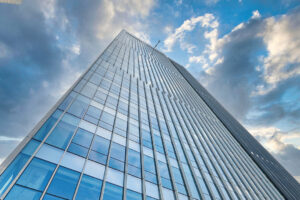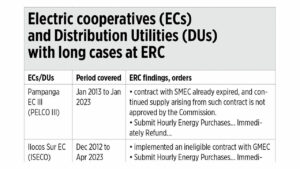Makati Commerce Tower gets LEED Platinum v4.0 certification

THE Makati Commerce Tower is the Philippines’ first and only LEED Platinum version 4.0 office building.
The 37-storey building, located along Sen. Gil Puyat Avenue in the Makati central business district, was developed by Empresas Diesel Development, Inc.
The Makati Commerce Tower is certified Platinum via the LEED BD+C: Core and Shell (v. 4) rating system, which is designed for projects where the developer controls the design and construction of the entire mechanical, electrical, plumbing, and fire protection system — called the core and shell — but not the design and construction of the tenant fit-out.
“Achieving LEED certification is more than just implementing sustainable practices. It represents a commitment to making the world a better place and influencing others to do better. Given the extraordinary importance of climate protection and the central role buildings play in that effort, the Makati Commerce Tower is creating a path forward through their LEED certification,” US Green Building Council President and CEO Peter Templeton said in a statement.
The Makati Commerce Tower offers 25 floors of office space, two floors for retail establishments, a dedicated food court, and eight podium and two basement parking levels, with total gross leasable area of 58,943 square meters (sq.m.).
The high-zone floors have typical floor plates of between 2,178 and 2,252 sq.m., while those in the mid-zone have 2,178 sq.m. The building is also designed to have large column-free floor plates to give occupiers more flexibility.
Among Makati Commerce Tower’s sustainable and wellness-focused features include hands-free and touchless technology solutions, a unitized glass curtain wall facade insulated with low-e coating, energy- and water-saving features, electric vehicles parking with charging points, and bicycle parking with shower facilities.
Maricris Sarino-Joson, director and head of office services — landlord representation at Colliers, said some landlords are now highlighting sustainable and wellness-focused features of their properties to attract occupiers.
“Not only will (these properties) afford commercial tenants the appropriate credentials to satisfy their ESG (environmental, social, and governance) goals, but many of them are also now attributing the growing importance of green and sustainable spaces to staff productivity, health, and overall happiness,” she said in a statement.




